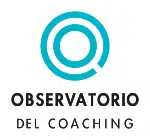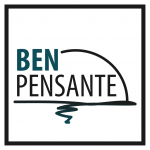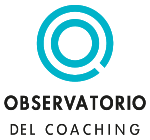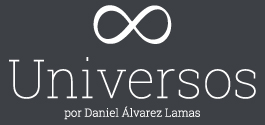De la Teoría del Desarrollo a la epistemología dialógica y dialéctica: Presentación de 3 modelos de diálogo con clientes basados en CDF. (2/2)
From “Developmental Theory” to a Dialogical and Dialectical Epistemology: Introducing Three Modes of Structured Dialog with Clients
Abbreviations:
CDF = Constructive Developmental Framework (Laske); DCR = Dialectical Critical Realism (Bhaskar); DSF = Dialectical Schema Framework (Basseches); DTF = Dialectical Thought Form Framework (Laske); IDM = Interdevelopmental Institute (Laske).
….
Following Brendan Cartmel’s work in CDF-based socio-drama, I began to refer to CDF users as inter-developmental interlocutors. By this I mean that they are educated as developmental and dialectical thinkers simultaneously, and thus are able not only to spot how client are presently making meaning and sense of their world, but also are able to assist them in moving from the actual world they are submerged in into the real world which they only dimly seeing.
My definition of inter-developmental interlocutor is that s(he) is one:
Learning from the later Basseches, now speaking as a theorist of psychotherapy in its diverse modes (Basseches and Mascolo, 2010), I began to understand that what I was teaching my students, and was myself doing better and better in my own coaching and work with teams, was based on consciously separating three dialog modes, shown below:
Basseches and his co-author show in their 2010 “Psychotherapy as a Developmental Process” that all psychotherapies are based on the selective privileging and coordination of three distinct dialog modes, and that psychotherapies differ in their emphasis on one or the other mode.
In my view, the authors thereby also point, at least indirectly, to coaching and consulting, — other forms of dialog used in the language-suffused world. I would give the following brief definition of these modes of CDF-based dialog:
- When giving attentional support, the CDF-interlocutor is focused on listening to the client, conveying deep interest in what is on his/her mind, and if need be reinforcing the client’s feeling and/or thinking. No CDF interview can be done without this support, nor can any feedback or any other consulting be engaged with. Attentional support is also, I would say, the primary mode an interlocutor uses in any social-emotionally grounded consulting activity. But clearly, this mode is supported, even in dealing with meaning-making only, by interpretation, and in coaching possibly by enactment (e.g., modeling a “higher” stage of meaning making).
- Interpretation is a broad field, since one can interpret moods, feelings, thoughts, frames of reference, ideologies, category errors, epistemic fallacies, almost anything expressed through speech, as well as text. So what is meant? Cleary, social-emotional interpretation differs from psychological and cognitive interpretation, and these differences are exactly what students are learning at IDM.
In contrast to the social-emotional interview, the cognitive interview is focused on interpreting base concepts, not factual content or feelings. We can interpret clients’ concepts or lack thereof in terms of DTF, and use thought forms as mind openers and mind expanders, to broaden interpretations clients propose. We do so in order to deal with client’s category errors (e.g., switching them from context to process) and epistemic fallacies (e.g., pointing out that the world is not equivalent to what the client knows about it). In this endeavor, attentional support as well as enactment support interpretation, the latter by leading clients from thought to action, “enacting a concept” (which could be a strategy) in the real world.
- Enactment is the modeling of how a concept or interpretation, a higher social-emotional stage and a modified psychological disposition can be achieved by a client. The way enactment is used social-emotionally, psychologically and cognitively differs, of course. By pointing clients to the financial or other consequences of specific strategic alternatives, Jan DeVisch, whose focus often is on enactment, has demonstrated that enactment can easily become the central mode of a dialectically oriented consulting to executive teams, especially when it is skillfully supported by the other two modes (Jan DeVisch 2010, 2013; .https://interdevelopmentals.org/publications-Jan_de_Visch.php).
It seems to me that in terms of the distinction between these 3 modes, social-emotional and cognitive interviewing based on CDF have their own idiosyncratic structure. Social-emotional interviewing is largely focused on giving attentional support to the way the interviewee selects and interprets so-called prompts, while cognitive interviewing, when done well, is based on the enactment of Bhaskar’s four moments of dialectic (extensible to individual dialectical thought forms). In both cases, the remaining two modes of interviewing dialog serve as obligatory supports for the privileged dialog mode.
If we think about what it means to use DTF in these three complementary modes, I think it would look as shown below:
(MELD is a reference to Bhaskar’s four moments of dialectic, corresponding in CDF to CPRT).
Clearly, every CDF-interlocutor, when consulting to clients or coaching them, uses these three modes in a different relationship with the other two: some interlocutors prefer attentional support as the primary mode (e.g., those who only use Kegan), while others will focus on interpretation (following DTF) or use enactment in psychological or strategic feedback.
What dialog mode an individual prefers to use in his or her work, as well as in coaching or consulting, is both a psychological and developmental issue. An immature individual will be incapable of lending others attentional support, having nothing to go by than his or her ego-centrism or “competence”. Such a person will feast on a narrow set of ideological concepts, perhaps with religious fervor, and will indulge in a kind of enactment that is poorly supported by humble inquiry and attentional support. To experience the “tell and do” world in which most professionals live, you just need to listen to members of a start-up company.
***
The three intervention modes outlined above also contribute to a meta-theory of coaching, whatever the approach of the coach may be, NLP, ontological, ICC or ICI. These modes help characterize “coaching schools” by the predominant dialog mode they teach. These modes are also central in team coaching and group hosting, which can be especially effective when based upon insight into the deep social-emotional structure of a particular team or cohort outlined by the CDF team typology (https://interdevelopmentals.org/team_maturity.php).
For instance, in an upwardly divided level-2 team where most team members are at Kegan-level 2 and a minority is a Kegan-level 3, enactment is powerless without attentional support, and DTF interpretation is most likely fruitless. Whereas in a downwardly divided level-5 team, where the majority of team members acts from Kegan level 5 and a minority from Kegan level 4, both social-emotional and cognitive interpretation are powerful tools to which the other two modes can be subordinated. Here, the enactment will largely come from the team itself since its task process is no longer overwhelmed by the developmentally rooted assumptions structuring the interpersonal process, as in immature teams and cohorts where “relationship” is king and defenses abound.
Doing justice to CDF as an epistemology based on dialog, not argument, is grounded in knowing what dialog mode one is presently using, when to use which mode as well as when to switch from one mode to another in a real-time situation. Being conscious of what mode one is using at any time is actually the only way of skillfully subordinating the two remaining modes to the one presently employed, something that is best learned through social-emotional and cognitive interviewing (https://interdevelopmentals.org/certification-module-a.php and https://interdevelopmentals.org/certification-module-b.php).
***
There is, of course, a risk to be aware of, namely that of slipping from dialog into argument, as the “tell and do” world in which we live constantly tempts us to do. By doing so, you change your epistemology. You are now the one who knows it all. But as you also know, you can’t change the world by way of arguments (which are always only right or wrong, omitting absences, and thus pinned to the present.) If you think about it, the three modes outlined above are the three pillars of any dialogical epistemology, in whatever discipline and for whatever purpose it may be used.
Clearly, you want to meet your client where your client is since other ways of meeting don’t exist. On the other hand, your client wants to be “understood” by you by way of dialog with him or her. To “understand” professionally, you need a dialogical epistemology putting asking over telling, and if this epistemology is going to be developmental and dialectical as well, you need to learn what Kegan stages and phases of dialectical thinking empirically “sound like”. And this, again, can best be learned from developmental interviewing as originated by Kegan and Basseches, and today taught at IDM.
The more mature the client you are dealing with is, whether it is an individual or a team, the less you will have to focus on the interpretation of meanings and feelings, but rather will have to deal with concepts, or lack thereof (in the client’s speech). That means you need to have an understanding of Bhaskar’s four moments of dialectic, in CDF concretized and extended by way of dialectical thought forms.
If you can embrace all that, as you begin to learn to do in an IDM case study, you have become what I call an inter-developmental interlocutor. To arrive at this destination, “sweat comes before virtue”, as Hesiod says. You need to want to sweat it out.
Selected Bibliography
Adorno, Th. W. (1974; 1951). Minima Moralia. London: Verso.
Bhaskar, R. (2002). Reflections on MetaReality. London: Routledge.
Bhaskar, R. (1993). Dialectic: The pulse of freedom. London, Verso.
Basseches, M. (1984). Dialectical thinking and adult development.
Basseches & Mascolo (2010). Psychotherapy as a developmental process. London: Taylor & Francis Group, LLC.
Jaques, E. (1989). Requisite organization. Arlington, VA: Cason Hall & Co.
Laske, O. (2014a). Laske’s Dialectical Thought Form Framework (DTF) as a tool for creating integral collaborations: Applying Bhaskar’s four moments of dialetic to reshaping cognitive development as a social practice. Conference paper, IACR, London, July 2014.
Laske, O. (2014b). Teaching dialectical thinking by way of qualitative research on organizational leadership: An introduction to the Dialectical Thought Form Framework (DTF). Conference lecture IACR, London, July 2014.
Laske, O. (2009). Measuring Hidden Dimensions: Foundations of requisite organization. Medford, MA: IDM Press.
Laske, O. (2005). Measuring Hidden Dimensions: The art and science of fully engaging adults. Medford, MA: IDM Press.









